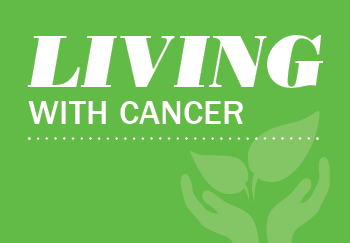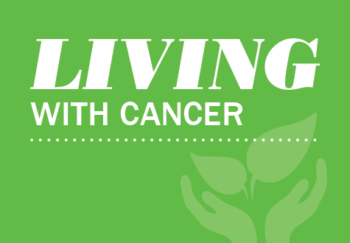 When you have cancer, you may become so focused on treating it that you overlook other, more routine health concerns. With high blood pressure and cancer, though, the consequences can be serious. According to the National Heart, Lung and Blood Institute, high blood pressure over time can lead to a heart attack, stroke, heart failure, kidney damage and peripheral arterial disease, along with other health problems.
When you have cancer, you may become so focused on treating it that you overlook other, more routine health concerns. With high blood pressure and cancer, though, the consequences can be serious. According to the National Heart, Lung and Blood Institute, high blood pressure over time can lead to a heart attack, stroke, heart failure, kidney damage and peripheral arterial disease, along with other health problems.
It’s especially important for cancer patients to manage their chronic high blood pressure because some cancer drugs can actually increase blood pressure, reports the American Society of Clinical Oncology (ASCO). These cancer drugs include bevacizumab (Avastin), sorafenib (Nexavar) and sunitinib (Sutent). Some hormonal and targeted therapies for breast cancer can also cause your blood pressure to spike, according to breastcancer.org. If you’re taking one of these drugs and your blood pressure rises, your doctor may need to alter your blood pressure medication.
Why It’s Important to Track
According to ASCO it’s important for cancer patients who also have a chronic condition like high blood pressure to understand how it can affect cancer treatment. Potential problems include:
- Reactions between your cancer drugs and other medications
- Your cancer treatment making your high blood pressure worse
- Your cancer treatment may be interrupted if your blood pressure flares uncontrollably
- Slower recovery from cancer treatment because of your high blood pressure
Your cancer care team will work with you to lower these risks. You can also help by doing your part to keep your blood pressure under control. That means taking all your medications as prescribed, getting as much physical activity as your health permits, eating a variety of fruits and vegetables and avoiding salt, alcohol and tobacco. You’ll also want to be diligent about taking your blood pressure at home per your doctor’s instructions.
Know the Signs
High blood pressure has long been known as a “silent killer” because it typically doesn’t create any symptoms until organ damage has occurred or blood pressure reaches crisis levels. The AHA urges everyone with high blood pressure to be aware of “hypertensive crisis,” which they define as blood pressure readings of 180/110 or higher. A person who is having a hypertensive crisis may experience severe headache, shortness of breath, nosebleeds and/or severe anxiety
You can wait for a few minutes, and then take your blood pressure again. If it’s still 180/110 or higher, dial 911. Also call if you have any of these symptoms:
Learn More About UVA Cancer Center
UVA Cancer Center is one of only 69 National Cancer Institute-designated cancer centers. That means it’s part of a renowned group of leaders in cancer research, prevention, detection and treatment.
- Chest pain
- Shortness of breath
- Back pain
- Numbness and/or weakness
- Change in vision
- Difficulty speaking
If you have high blood pressure and cancer, talk with your doctor for specific instructions about what to do if your blood pressure levels are too high. Write down the guidelines from your doctor, put it on your fridge and give it to all your caregivers. That way everyone is equipped with the appropriate knowledge.
Chances are, you’ll be able to manage your high blood pressure while also completing cancer treatment. To increase your odds of success, communicate any concerns to your healthcare team.

